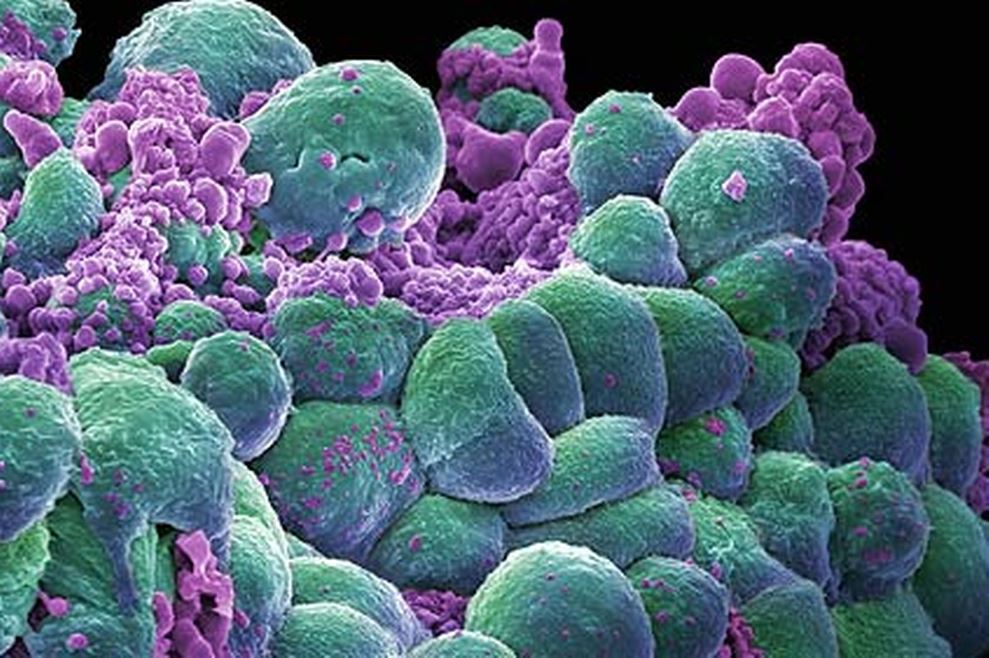These days, cannabis is about a lot more than getting high; a new Israeli study supports the idea that cannabis could be used to kill cancer cells.
Biologist Dr. David Meiri of the Technion-Israel Institute of Technology is conducting cutting-edge research showing that combinations of different compounds in cannabis can be extremely effective in destroying specific cancer cells.
SEE ALSO: Turning High-Tech Into ‘High’ Tech: Behind Israel’s Blooming Medical Cannabis Industry
According to the World Health Organization, cancer is the second leading cause of death globally, and resulted in 8.8 million deaths in 2015. The primary medical treatment, chemotherapy, can have unpleasant side effects such as hair loss and lethargy. But an Israeli researcher claims that cannabis could offer an alternative to chemotherapy, without the harmful side effects.
The idea that cannabis could cure cancer is not new. However, much of the evidence is anecdotal, and scientific research conducted in the past has not precisely identified which cannabis compounds kill which cancer cells, and why. “We realized that there is a vacuum,” Meiri tells NoCamels. “People don’t know and understand the strains [of cannabis] enough.”
Along with his team of 30 researchers in the Laboratory of Cancer Biology and Cannabinoid Research, Meiri is working to remedy this. His solution is to identify the exact chemical composition of different strains of cannabis. By systematically applying these strains to different cancer cell samples, he has been able to determine which strains of cannabis kill specific cancer cells.
“Bringing back the ability of the cancer to commit suicide”
The mechanism is similar to chemotherapy. One of the defining characteristics of cancer cells is their inability to ‘die’ like normal cells. The natural process of self-destruction, termed apoptosis, is not occurring; as a result, the cancer cells spread and invade other parts of the body. What cannabis has the potential to do, according to Meiri, is “like bringing back the ability of the cancer to commit suicide.”
Meiri is optimistic about the potency of the drug. “We’re talking about very low dosages,” he tells NoCamels, “milligrams of extract that are killing the cells.” This is a similar dosage to what is currently administered for chemotherapy, and is small enough to not kill normal, healthy cells. It means that cannabis could be a viable drug to be prescribed for cancer in the future.
SEE ALSO: Cannabis Heals Bone Fractures, Makes New Bones Even Stronger
Cannabis is the name of the plant from which marijuana is derived. The plant itself is made up of different molecular families, such as cannabinoids, terpenes, and flavonoids. Discussions on cannabis often focus on the two most prominent cannabinoids: THC and Cannabidiol (CBD). THC is a psychoactive compound that gives the ‘high’ commonly associated with marijuana usage, while CBD is non-psychoactive. Both have been proven to have a wide range of medicinal benefits, from reducing epileptic seizures, to minimizing violence and anxiety in autistic patients.
Sign up for our free weekly newsletter
SubscribeDifferent strains of cannabis have different combinations of these compounds, and can thus have vastly different effects on the body.
Already, cannabis is being used to reduce the side effects of other cancer treatments; studies have found that it eliminates the vomiting and nausea caused by chemotherapy. While observing this, scientists began to realize that cannabis was actively reducing or stopping the spread of cancer cells themselves.
This revelation inspired Meiri to gather more data. Using sophisticated machinery, he has managed to identify the exact composition of compounds such as cannabinoids and terpenes in every single strain grown in Israel.
It’s valuable information. “I think that the depth of looking in the compounds is something that nobody else is doing,” says Meiri. “If something is working, or something is not working, we can see from the bottom to the top what is the difference [in the chemical composition].” In contrast, most of the current research is focusing on only a few cannabinoids.
Long way from a cure
Although Meiri’s research has exciting potential in the battle against cancer, we still have a long way to go before we find an all-encompassing cure. The lab’s research is currently limited to samples of cancer cells in laboratories; the human body is far more complex.
Meiri is wary about inflating the potential of cannabis, and stresses the importance of approaching it with a critical, scientific mindset. “I don’t think people should use cannabis as a treatment to cancer before we know how to treat them well,” he emphasizes. “If it’s their last chance and nothing is working anymore… for these people, they might try cannabis. But not as a first battle.”
He is realistic about the limits of his research, yet carefully optimistic: “Cannabis won’t solve all types of cancer, but if we can find five, six, or seven types of cancer that cannabis can help, it’s huge, it’s amazing.”
Photos: Eloxx
Related posts

Israeli Medical Technologies That Could Change The World

Harnessing Our Own Bodies For Side Effect-Free Weight Loss

Missing Protein Could Unlock Treatment For Aggressive Lung Cancer







Facebook comments